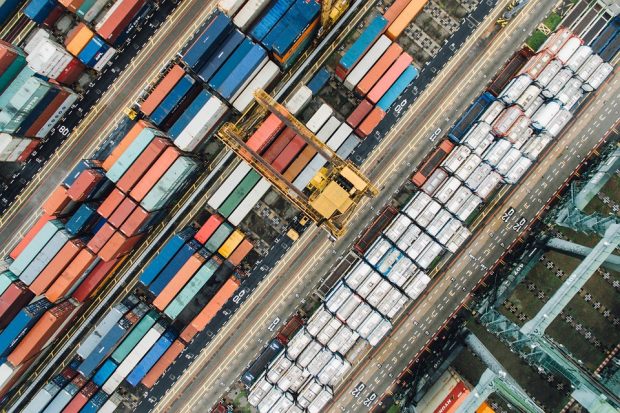
Seoul again presses Tokyo not to implement additional export curbs

South Korea on Wednesday repeated its call for Japan to scrap its planned measure to take Seoul off its list of trusted trading partners granted with preferential procedures for exports, warning it could undermine bilateral economic ties. Early this month, Japan implemented strict regulations for exports of three key materials to South Korea that are crucial for the production of chips and displays on the grounds that Seoul runs a lax system for the control of goods that can be diverted for military purposes. Japan is set to expand its restrictions to other areas by removing South Korea from a whitelist of trusted importers in the coming weeks, a move that could delay or disrupt the supply of such materials as it could affect more than 1,000 items.
Japan plans to receive opinions on the upcoming revision until Wednesday. The revised rule will go into effect 21 days after being approved by the Japanese Cabinet. But Tokyo may implement it later this month or in early August. “All grounds raised by Japan for its restriction against South Korea, such as lack of export control or the undermined trust between the two countries, are baseless,” Sung Yun-mo, minister for trade, industry and energy, said in a statement.
Earlier in the day, Seoul sent a 20-page letter to the Japanese government, calling for the immediate lifting of both ongoing and upcoming export restrictions against Asia’s fourth-largest economy. “The measure will increase export regulations against South Korea, which has been considered a whitelist country for more than 15 years. This is a grave event that hurts the close economic partnership of Seoul and Tokyo that has lasted for more than 60 years,” the ministry said in a statement. The ministry described Tokyo’s action as “shortsighted” and said, “It will hurt not only South Korean firms but also Japanese companies as well,” the ministry said. “South Korea and Japan should create an equal and mutually beneficial free trade system.”
In the letter, Seoul’s trade ministry reiterated that the restrictions violate World Trade Organization rules. “We believe (the Japanese export curb) clearly violates the WTO agreement. We plan to have the world understand the unfairness of Japan’s export restriction,” an official from the ministry said, adding that South Korea is closely reviewing filing a complaint with the WTO on the matter. Since Japan announced the restriction, Tokyo has not granted any permission on the exports of the three products to Seoul, the ministry said.
The ministry said South Korea, however, is ready to engage in dialogue with Japan at anytime. “We will keep making efforts to deliver our stance and persuade Japan (to retract the restrictions),” another ministry official said. “But if Japan makes unilateral and discriminatory actions based on wrong facts, we will also respond accordingly.” Seoul believes that Japan’s move is politically motivated, as the neighbor is demanding the nullification of a Seoul court decision last year ordering Japanese companies to compensate South Korean workers forced into labor during World War II.
Tokyo has strongly protested the ruling, arguing that all reparation issues were settled under a 1965 treaty the two countries signed when they normalized diplomatic relations. The Korean Peninsula was under Japan’s harsh colonial rule from 1910-45. Amid the growing tension with Japan, South Korea has been ratcheting up its move to win support from the international community to fend off Tokyo’s export curbs. Trade Minister Yoo Myung-hee is currently in Washington to meet U.S. officials to highlight that Tokyo’s restrictions could disrupt global supply chains and have a negative impact on U.S. firms as well. Seoul’s Deputy Trade Minister Kim Seung-ho is also currently in Geneva to participate in the General Council meeting of the WTO to tell the members that Japan’s restrictions violate the free trade system.
On Tuesday, South Korea’s business circle submitted a letter to Japan’s trade ministry demanding it scrap the latest export restrictions against its neighbor. Five economic organizations, including the Korea International Trade Association, the Korea Chamber of Commerce and Industry, and the Korea Employers Federation, also said that the Japanese government should not remove South Korea from the whitelist as the delisting could have a far-reaching impact on the South Korean economy. A slew of U.S. trade associations also warned on Wednesday that Japan’s export restriction would undermine the global supply chain and deliver long-term damage to the global manufacturing sector.
In a letter sent to Seoul’s Trade Minister Yoo and her Japanese counterpart Hiroshige Seko, the Semiconductor Industry Association and other associations urged the two countries to promptly seek a resolution for the global supply chain. “Non-transparent and unilateral changes in export control policies can cause supply chain disruptions, delays in shipments and ultimately long-term harm to the companies that operate within and beyond your borders, and the workers they employ,” the letter said. The U.S. trade associations called on Tokyo to refrain from making “actions that could escalate the situation further in order to avoid potentially long-term damage to the global ICT and manufacturing industries.”
By Kang Yoon-seung
(Yonhap)


